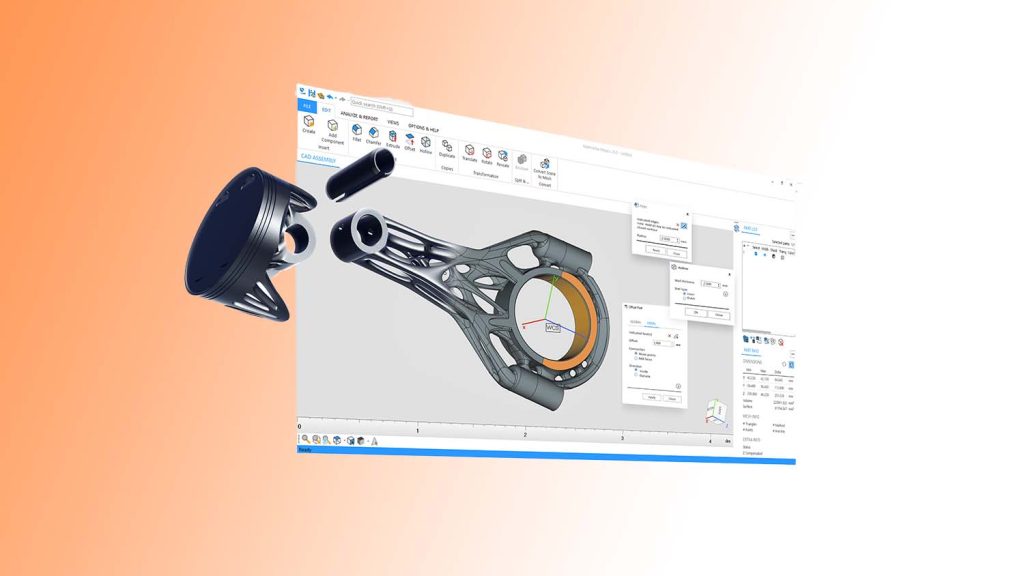Magics 26, the latest version of Materialise’s 3D printing data and build preparation software, has seen the software add support for native CAD workflows with its existing mesh capabilities.
With Mesh and CAD each offering unique benefits when editing and preparing files for 3D printing, the way forward for Magics 26 is to combine both and allow users to benefit from hybrid workflows within the UI, building on its announcement to use Siemens’ Convergent technology in this launch last December.
CAD offers a higher resolution than mesh for part editing. Mesh, however, offers a consistent file format that ensures quality and compatibility with 3D printers, especially during build preparation. The mesh file format contains all of the information about the inside and outside of 3D models necessary to slice parts and begin 3D printing.
Materialise product line manager Egwin Bovyn, said: “Mesh-based processes hold significant benefits for applications and operations in data and build preparation with current 3D printing technologies.
“Introducing CAD-based workflows in Magics 26 creates a path toward enhanced hybrid workflows in future versions of our software.”
Magics 26 also introduces a Part Scene in which users can edit CAD-based parts in addition to mesh-based Part and Platform Scenes for editing, fixing, analysing and build preparation. Users can choose their preferred workflow based on their 3D printing project requirements and edit their parts in mesh or in CAD format.
The new CAD-workflow for part editing supports users with projects that demand a close alignment or frequent exchange between design and data preparation. Editing and saving their parts in a CAD-native format enables Magics users to maintain part integrity and to use cleaner, high-resolution CAD-files.
This can help reduce time between design iterations and improves stability and repeatability by preventing errors that may occur in transitions between file types.
The CAD-workflow allows users to adapt and edit parts up to the point when they are optimised and ready for 3D printing before switching to build preparation.
Magics 26 also offers new mesh capabilities. Improved support generation and advanced automated nesting look to help lower the scrap rate and increase productivity.
Flexible cone and tree supports can be enhanced with braces to improve the stability of prints. The advanced automated nesting enables a higher part density and offers the option to generate supports between parts when producing with Electron Beam Melting (EBM) and Binder Jetting.
The supports improve heat dissipation to decrease warping and prevent parts from fusing together during the printing process.
Magics 26 is available from May 24 2022.






